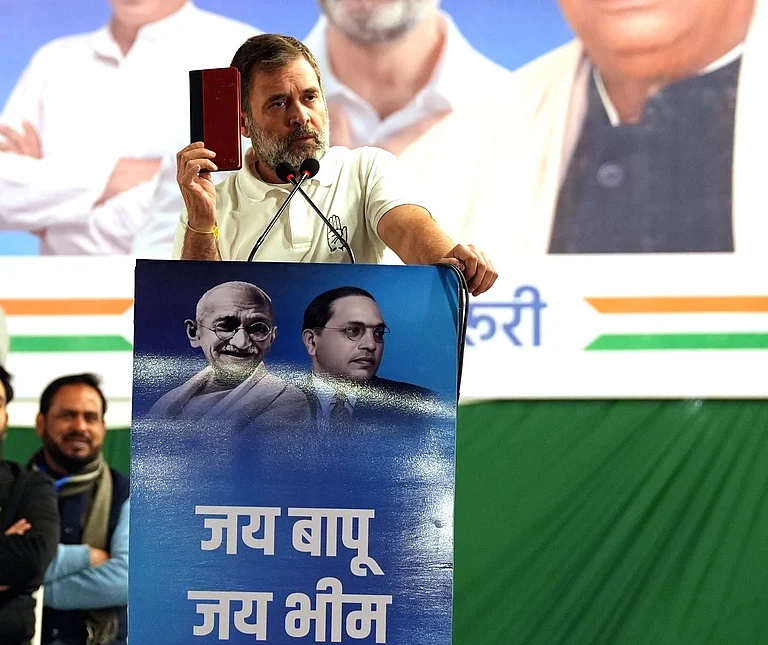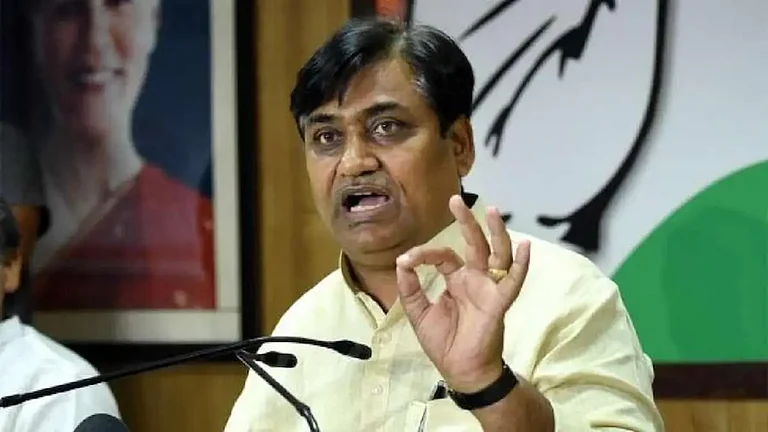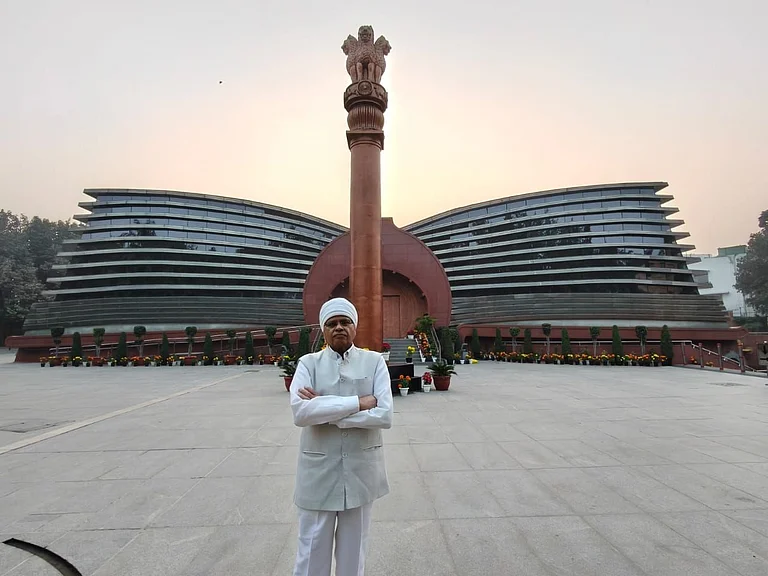Congress leader Kumari Selja, a prominent Dalit leader from Haryana, has emerged as a key factor in the state’s politics and Congress’ recent poll fiasco with many observers claiming that the party’s sidelining of the popular leader led to its defeat. While the Congress had appeared confident of wresting the state from the ruling BJP ahead of the Assembly Elections, voting for which took place on October 5, internal faction wars had become apparent weeks ago between the Selja faction and the ‘Hooda camp’ led by former Haryana CM and Jaat leader Bhupinder Singh Hooda.
The faction wars came to the fore about two weeks ahead of elections when it was reported that Selja was staying away from campaigning. BJP’s ML Khattar also purportedly sent her an invite to switch over to the BJP. The bone of contention started with seat distribution which was dominated by the Hooda camp. As per reports, Selja had sought 30 to 35 seats out of the 90 Assembly seats in Haryana for her camp during the ticket distribution process. The Congress central leadership nevertheless allotted 72 tickets to the Hooda faction. The party’s decision to snub Dr Ajay Chaudhary, a close ally of Selja, in favour of Jassi Petwar for the Narnaund seat also seems to have added insult to injury.
Jaat-Dalit relations in Haryana
While it is inaccurate to categorise Dalits as a homogenous political entity in Harayana, observers feel that Selja’s purported sidelining by Congress seems to have not sat well with Dalit voters of Haryana who constitute 20 percent of the state’s population. A majority of the 20 percent Dalits are Jatas while Valmikis follow as a close second. Other Schedules Caste communities under the Dalit umbrella include Dhanuk community and Mazhabi Sikhs.
The Jaats form the largest chunk of Haryana’s population (over 27 percent) and are socio-politically dominant with a majority being landed farmers. In contrast, the Dalits live mostly in rural areas and are landless farmers working on farms owned by Jaats. The interpersonal dynamics between the two communities has historically been unequal with the interests of Dalits often clashing with Jaats when it comes to issues like political representation and social identity. The two groups are often at odds at a village level on the issue of employment, wages etc.
With the Hooda camp dominating within Congress, many from the community expressed concern at the thought of another Jaat CM.
“Many from the community wanted to see a Dalit CM face from Congress since they had talked about saving the Constitution in the Lok Sabha elections. But the ticket distribution was disappointing,” said Rishi Raj, a panchayat member from the Sikh and SC-dominated village of Ashrafgarh in Julana constituency.
While the Congress has won Julana, Raj feels that issues faced by Dalit voters are rarely addressed by any party. Raj points out to his own village where scarcity of clean drinking water has been a constant issue for residents. “The comments against Selja by Congress leaders were also disappointing and may have hurt sentiments of Dalit voters,” he adds.
During the nomination event of Jassi Petwar, a Congress worker’s casteist comments against Selja went viral on social media. As supporters of Selja raised a row over the comment, senior Congress leaders like P Chidambaram had to publicly fight the fire. “My good friend (Kumari) Selja ji has not said a single word against Mr Hooda, nor has Mr Hooda said a word against Ms Selja. So we are a united party. We will fight this election in a united manner,” Chidambaram had said.
Despite Congress’ official stand to not name any CM face ahead of polls, both Hooda and Selja had made no bones about their ambitions to become CM. Even on the date of counting, Selja had told media that she was in the race for CM, though “the final decision rests with high command” of Congress.
Following the party’s unsatisfactory show in the state, Selja said, "I was very excited in the morning... we had expected to win up to 60 (of Haryana's 90 Assembly seats), so this result is a big setback for us. We will assess the reasons for our defeat... there can be many... and see how these can be overcome for future elections,"
Women in Haryana Polls
The results also point toward a failure for all parties to establish ‘women’s empowerment’ as an important poll issue in Haryana. The Congress had been banking on consolidation of the women’s vote in Haryana, with a slew of ‘freebies’ including a monthly allowance of ₹2,000 to each woman between the ages of 18 and 60 years if it comes to power in the State. Other such ‘guarantees’ include 300 units of free electricity to all households, a legal guarantee for minimum support prices (MSPs) for crops, and a caste survey. It even gave a ticket to star-candidates like Vinesh Phogat who had been on the forefront of the anti-sexual harassment protests against Brij Bhushan Singh and the Wrestling Federation of India last year. The BJP manifesto also promised two lakh government jobs, ₹2,100 to women, job guarantee for Agniveers.
Nevertheless, the election remained male-dominated with only 51 women candidates being fielded by prominent parties, of which a majority had the backing of a political family or celebrity status. The total 1,031 candidates included 464 Independents and 101 women. The Congress had fielded 12 women, while the Indian National Lok Dal (INLD) and the Bahujan Samaj Party (BSP) alliance fielded 11 women candidates. The ruling BJP named 10 women nominees.
Among the top women contenders in the fray across parties, Phogat won from Julana with over 6,000 votes, beating BJP candidate Yogesh Bairagi. Among Independent women candidates, Savitri Jindal, chairperson emeritus the O.P. Jindal Group and the richest woman in India, won the Hisar seat. Another independent candidate, Chitra Sarwara, has defeated BJP’s Anil Vij in Ambala Can’t seat. Other women who won include INC’s Shalley Chaudhary who beat BJP’s Pawan Saini with a wide margin. BJP’s Shruti Choudhry, grand-daughter of former Haryana CM Bansi Lal, won from Tosham seat on a BJP ticket, defeating her cousin Anirudh Choudhry. In the SC reserved seat of Pataudi, BJP’s Bimla Choudhry has emerged a winner. 71-year-old BJP candidate Shakti Rani Sharma has wrested the seat from Congress’ Pradeep Chaudhary. AAP’s Rabia Kidwai, the first woman to contest Assembly polls from the Muslim-majority Nuh seat, polled only 222 votes, with the Congress’ Aftab Ahmad clinching a clear win.





























